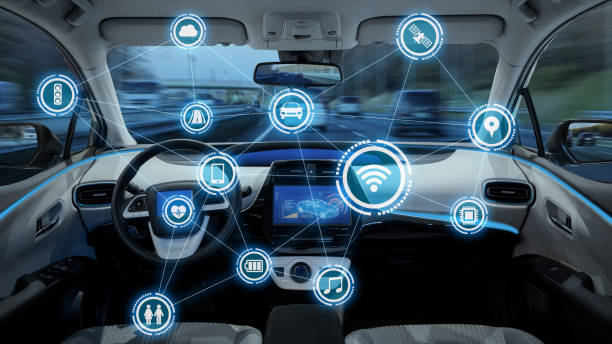
The world is rapidly moving towards a more connected future, and one of the most promising areas of development is the automotive industry. Connected vehicles, which encompass a wide range of technologies that enable communication between vehicles, infrastructure, and other devices, are transforming the way we drive and experience transportation. As these technologies continue to advance, telecommunication companies (telcos) play a crucial role in supporting the growth of connected vehicles, from providing robust mobile broadband connectivity to enabling genuine Vehicle-to-Everything (V2X) communication. In this blog, we will explore the relevance of telcos in driving the evolution of connected vehicles and the benefits they bring to the automotive ecosystem.
- Mobile Broadband Connectivity: The Foundation of Connected Vehicles
Connected vehicles rely heavily on reliable and high-speed connectivity to function effectively. Telcos, with their expansive infrastructure and network capabilities, are instrumental in providing the necessary mobile broadband connectivity that connects vehicles to the internet. This connectivity enables a multitude of services within connected vehicles, including real-time traffic information, navigation, over-the-air software updates, and in-car entertainment systems. Telcos’ investment in expanding their 4G and 5G networks ensures that connected vehicles can access a fast and stable connection, enhancing the overall user experience and enabling a wide range of innovative applications.
- Telematics and Vehicle Diagnostics
Telcos also play a pivotal role in the collection and transmission of vehicle data. Through embedded telematics systems, vehicles can capture and transmit important information such as GPS location, vehicle diagnostics, and driving behavior. Telcos facilitate the seamless transfer of this data to automotive manufacturers, enabling them to analyze vehicle performance, diagnose issues remotely, and provide predictive maintenance services. By leveraging telcos’ network infrastructure, automakers can access valuable insights that enhance vehicle reliability, optimize maintenance schedules, and improve the overall ownership experience.
- V2X Communication: Enabling Safer and Smarter Roads
One of the most significant advancements in the realm of connected vehicles is Vehicle-to-Everything (V2X) communication. V2X encompasses Vehicle-to-Vehicle (V2V), Vehicle-to-Infrastructure (V2I), Vehicle-to-Pedestrian (V2P), and Vehicle-to-Network (V2N) communication. Telcos have a crucial role to play in enabling genuine V2X communication by providing the underlying network infrastructure and connectivity.
V2V communication allows vehicles to exchange information, such as speed, position, and intentions, in real-time, enabling proactive collision avoidance and traffic management. V2I communication enables vehicles to communicate with traffic lights, road signs, and infrastructure, providing drivers with real-time traffic updates, optimized routing, and improved efficiency. V2P communication helps enhance pedestrian safety by alerting both drivers and pedestrians to potential hazards or collisions. V2N communication enables vehicles to connect to cloud-based services and platforms, facilitating data sharing, software updates, and advanced analytics.
Telcos’ networks are instrumental in facilitating this seamless communication between vehicles, infrastructure, and other road users. By investing in robust network infrastructure, telcos enable the development and deployment of V2X technologies, ultimately making our roads safer, reducing traffic congestion, and enhancing the overall efficiency of transportation systems.
- Data Security and Privacy
With the increasing volume of data being generated by connected vehicles, data security and privacy become paramount concerns. Telcos play a critical role in ensuring the secure transmission and storage of vehicle data. By implementing robust security protocols and encryption techniques, telcos help protect sensitive information and prevent unauthorized access. Furthermore, telcos collaborate with automakers, regulatory bodies, and technology partners to establish industry-wide standards and best practices for data security and privacy, fostering trust among consumers and stakeholders.
Telcos are at the forefront of driving the growth of connected vehicles, from providing essential mobile broadband connectivity to enabling genuine V2X communication. Their expansive network infrastructure, investment in advanced technologies like 4G and 5G, and commitment to data security and privacy make them vital partners in the automotive ecosystem. By working hand in hand with automotive manufacturers, telcos are helping shape a future where connected vehicles offer enhanced safety, efficiency, and convenience. As the automotive industry continues to evolve, the collaboration between telcos and automakers will be key to unlocking the full potential of connected vehicles and realizing the vision of a truly connected and intelligent transportation system.

